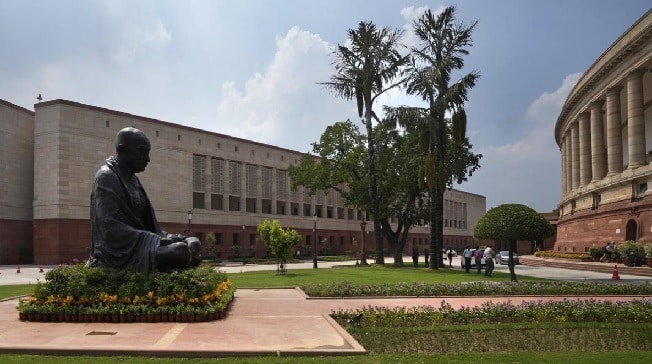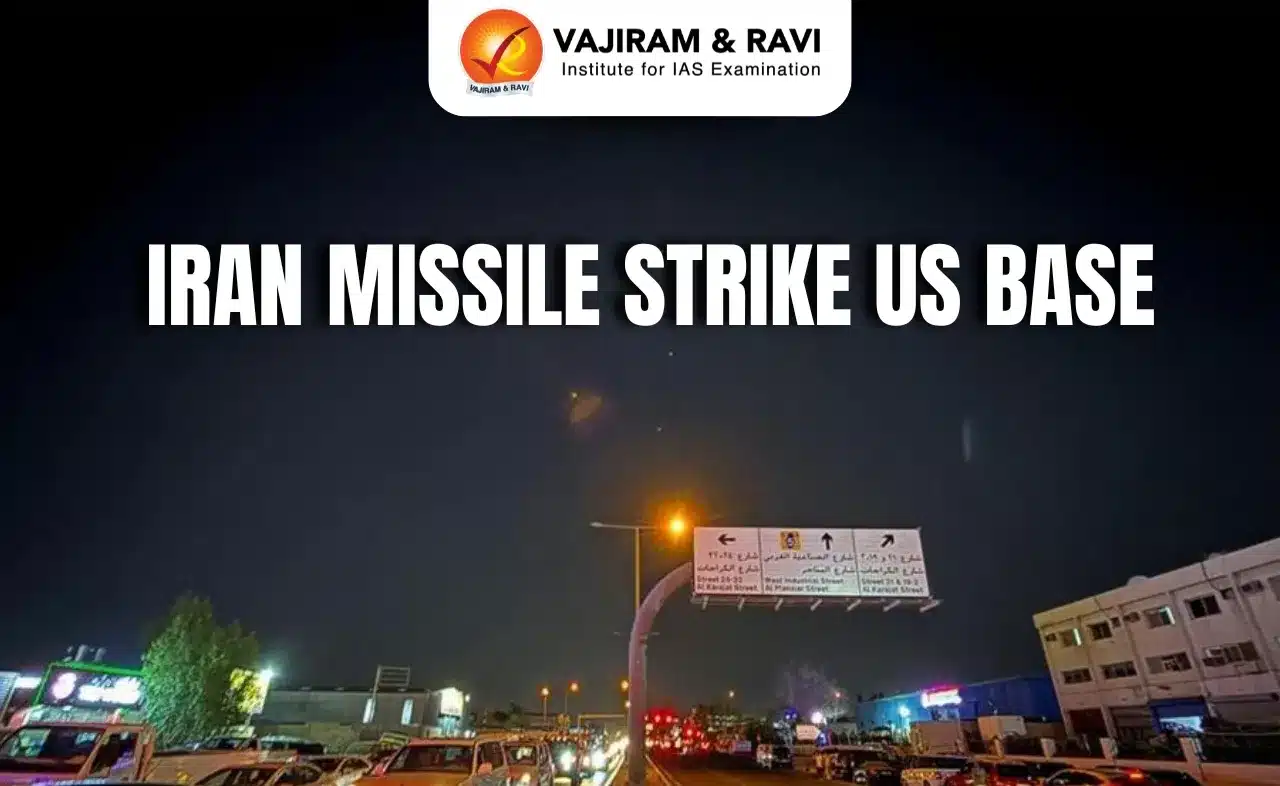What’s in today’s article?
- Why in news?
- News Summary: Understanding the significance of the Parliament ‘special session’
- When is Parliament convened as per the Constitution?
- Is there a fixed timetable?
- Who has the authority to call for a session?
- When is a ‘special session’ conducted?
Why in news?
- A ‘special’ five-day session of Parliament began on September 18.
- On August 31, the Union Minister for Parliamentary Affairs had announced that a special session of Parliament would be held from September 18 to 22.
- Although there is no specific provision in the Constitution that deals with special sessions, a few such sessions have been convened in the past.
- The most recent instance was in June 2017 when the PM Modi-led government held a special session to roll out the Goods and Services Tax (GST).
News Summary: Understanding the significance of the Parliament’s ‘special session’
When is Parliament convened as per the Constitution?
- Article 85 of the Constitution deals with prorogation and dissolution of Parliament.
- While there is no fixed schedule, the provisions of the Article specify that the President must summon the Houses to meet at least once within six months.
- The provision has its roots in the Government of India Act, 1935, according to which not more than 12 months should elapse between two sessions.
Is there a fixed timetable?
- No fixed number of sessions
- Although the Constitution doesn’t provide for a fixed number of sessions or days of sitting, three sessions are typically held each calendar year — the Budget, Monsoon, and Winter sessions.
- Attempt to finalise a fixed calendar
- An attempt was made in 1955 to finalise a fixed calendar.
- The General Purpose Committee of the Lok Sabha at their sitting held in April 1955 recommended that:
- the Budget Session take place between February and May,
- the Monsoon Session from July to September and
- the Winter Session from November to December.
- The Cabinet led by Jawaharlal Nehru also agreed to the recommendation, but it was never implemented.
- Since then, dates have been shuffled, and the duration has also varied as per the legislative agenda of the government.
- Current status
- The Budget Session is usually the longest.
- It commences towards the end of January, concludes by April-end and includes a recess for Parliamentary Standing Committees to consider the budget.
- It is followed by the Monsoon Session which begins in July and concludes in August.
- The Winter Session is usually held from November to December.
Who has the authority to call for a session?
- The Central government has the authority to call for a session.
- The Cabinet Committee on Parliamentary Affairs (CCPA), which includes several Cabinet ministers, determines the date and number of sittings.
- After finalising the session schedule, the President calls upon the Members of Parliament to convene for the upcoming session.
- The MPs are informed about the number of sittings and other details about the tentative business of the House through the summons sent by the President.
When is a ‘special session’ conducted?
- Constitutional provision
- The term ‘special session’ is not explicitly mentioned in the Constitution or in the rulebooks of the two Houses of Parliament.
- There are no specific guidelines on how or when such a session can be convened.
- However, Article 352, which deals with the proclamation of Emergency, refers to a special sitting of the House.
- This clause was added through the 44th Amendment Act in 1978, which included safeguards against the Emergency.
- Historical precedent
- Several special sessions including midnight sessions have been called for a special purpose or agenda, or to mark occasions of national significance.
- The first such sitting was held on the eve of Independence in 1947 to mark the transfer of power from the British to India.
- This was followed by a special session in 1962 during the Indo-China war when the Winter Session was advanced to discuss the Chinese aggression.
- In 1992, a midnight session was called to mark the 50th anniversary of the Quit India Movemen
- A few years later, in August 1997, a six-day special session was called to commemorate 50 years of Independence.
- Special session from September 18 – 22
- The upcoming session from September 18 to 22 will be the second special session convened by the Present government.
- It will be conducted without Question Hour, Zero Hour, or private members’ business.
Q1) What is the General Purpose Committee of the Lok Sabha?
The General Purposes Committee (GPC) is a parliamentary committee that advises on matters concerning the House that don’t fall under the jurisdiction of other parliamentary committees. The GPC was first constituted in 1954. The Speaker of the House nominates 15 members to the committee. The Speaker is the ex-officio chairman of the committee. The Deputy Speaker is also a member of the committee.
Q2) What is Quit India Movement?
The Quit India Movement was a non-violent protest led by Mahatma Gandhi in 1942. The movement demanded India’s independence from the British and protested the sending of Indian troops to fight in World War II. Gandhi launched the movement at the All-India Congress Committee in Mumbai on August 8, 1942. In his speech, Gandhi called for Indians to “Do or Die”.
Source: Understanding the significance of the Parliament ‘special session’ | Explained
Last updated on June, 2025
→ UPSC Notification 2025 was released on 22nd January 2025.
→ UPSC Prelims Result 2025 is out now for the CSE held on 25 May 2025.
→ UPSC Prelims Question Paper 2025 and Unofficial Prelims Answer Key 2025 are available now.
→ UPSC Calendar 2026 is released on 15th May, 2025.
→ The UPSC Vacancy 2025 were released 1129, out of which 979 were for UPSC CSE and remaining 150 are for UPSC IFoS.
→ UPSC Mains 2025 will be conducted on 22nd August 2025.
→ UPSC Prelims 2026 will be conducted on 24th May, 2026 & UPSC Mains 2026 will be conducted on 21st August 2026.
→ The UPSC Selection Process is of 3 stages-Prelims, Mains and Interview.
→ UPSC Result 2024 is released with latest UPSC Marksheet 2024. Check Now!
→ UPSC Toppers List 2024 is released now. Shakti Dubey is UPSC AIR 1 2024 Topper.
→ Also check Best IAS Coaching in Delhi
























